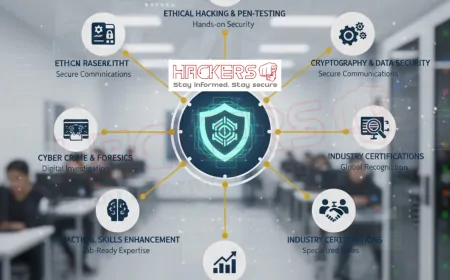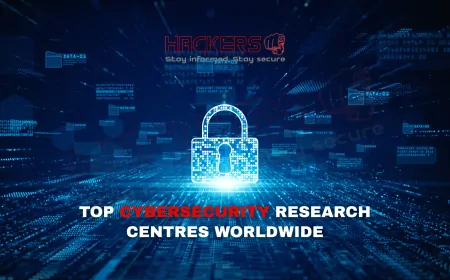Why Should Entrepreneurs Invest in Cybersecurity for FinTech?
The FinTech industry is revolutionizing how we manage money, from mobile banking apps to blockchain-based payments. But with innovation comes risk—FinTech companies are prime targets for cybercriminals due to the sensitive financial data they handle. A single data breach can cost millions, erode customer trust, and even sink a startup. In 2024, cyberattacks on FinTech firms surged by 30%, highlighting the urgent need for robust cybersecurity. For entrepreneurs, investing in cybersecurity isn’t just a precaution—it’s a strategic move to protect their business and thrive in a competitive market. This blog post explores why cybersecurity is critical for FinTech startups and how entrepreneurs can leverage it to build trust, ensure compliance, and gain a competitive edge. We’ll break down the benefits, strategies, and opportunities in a way that’s easy to understand, even for those new to the field. Let’s dive into why cybersecurity is a must-have investment for FinTech entrepreneurs.

Table of Contents
- Why Cybersecurity is Critical for FinTech
- Risks of Neglecting Cybersecurity
- Benefits of Investing in Cybersecurity
- Key Cybersecurity Solutions for FinTech: At a Glance
- Strategies to Implement Cybersecurity
- Conclusion
- Frequently Asked Questions
Why Cybersecurity is Critical for FinTech
FinTech companies handle sensitive data like bank account details, credit card numbers, and personal identities. This makes them magnets for hackers who use tactics like phishing, ransomware, or data theft to exploit vulnerabilities. A 2023 report found that FinTech firms faced an average of 700 cyberattacks per week, far higher than other industries. Cybersecurity isn’t just about protecting data—it’s about ensuring business continuity, maintaining customer trust, and meeting strict regulations like GDPR or PCI DSS.
For entrepreneurs, cybersecurity is a foundation for success. A secure FinTech startup can process transactions safely, avoid costly breaches, and build a reputation for reliability. In a market where trust is everything, investing in cybersecurity is a non-negotiable step to stand out and grow.
Risks of Neglecting Cybersecurity
Ignoring cybersecurity can have devastating consequences for FinTech startups. Here are the key risks:
- Data Breaches: Hackers can steal customer data, leading to identity theft or financial fraud, with recovery costs averaging $4.5 million per incident.
- Financial Loss: Breaches or ransomware attacks can drain funds, disrupt operations, and result in hefty fines for non-compliance.
- Reputational Damage: A single breach can erode customer trust, causing users to switch to competitors and harming long-term growth.
- Regulatory Penalties: Failing to meet standards like GDPR or PCI DSS can lead to fines, such as €20 million under GDPR or penalties under U.S. laws.
- Operational Downtime: Cyberattacks can halt services, like payment processing, costing revenue and frustrating customers.
These risks highlight why cybersecurity isn’t optional—it’s a critical investment to protect your FinTech startup’s future.
Benefits of Investing in Cybersecurity
Investing in cybersecurity offers FinTech entrepreneurs a range of advantages that go beyond just protection. Here’s why it’s worth it:
- Builds Customer Trust: Secure systems reassure users that their money and data are safe, encouraging loyalty and referrals.
- Ensures Compliance: Meeting regulations like GDPR, PCI DSS, or CCPA avoids fines and builds credibility with regulators and partners.
- Competitive Advantage: A strong security reputation sets your startup apart in a crowded FinTech market, attracting customers and investors.
- Reduces Costs Long-Term: Preventing breaches is cheaper than recovering from them, saving millions in potential losses.
- Enables Innovation: Secure systems allow you to experiment with new features, like blockchain or AI, without worrying about vulnerabilities.
- Attracts Investment: Investors prioritize startups with robust security, seeing it as a sign of reliability and scalability.
Key Cybersecurity Solutions for FinTech: At a Glance
The table below outlines essential cybersecurity solutions FinTech startups can adopt to protect their operations.
| Solution | Description | Benefit |
|---|---|---|
| Data Encryption | Scrambles data to prevent unauthorized access. | Protects sensitive financial information. |
| Multi-Factor Authentication (MFA) | Requires multiple verification steps for access. | Prevents unauthorized logins. |
| Threat Monitoring | Detects suspicious activity in real time. | Stops attacks before they escalate. |
| Compliance Audits | Ensures adherence to regulations like GDPR. | Avoids fines and builds trust. |
Strategies to Implement Cybersecurity
Entrepreneurs can implement cybersecurity in their FinTech startups with practical, cost-effective strategies. Here’s how:
- Prioritize Data Encryption: Use strong encryption protocols, like AES-256, to protect data in transit and at rest. Many cloud platforms like AWS offer built-in encryption tools.
- Implement Multi-Factor Authentication (MFA): Require users and employees to verify their identity with a password and a second step, like a code sent to their phone.
- Use Threat Monitoring Tools: Deploy tools like CrowdStrike or Splunk to monitor systems for suspicious activity, catching threats early.
- Conduct Regular Security Audits: Hire experts or use automated tools to assess vulnerabilities and ensure compliance with regulations.
- Train Employees: Educate staff on recognizing phishing emails and following security protocols, using free resources from organizations like CISA.
- Partner with Managed Security Providers: Outsource complex tasks like monitoring or incident response to affordable managed service providers (MSPs).
- Secure APIs: FinTech apps rely on APIs for payments or data sharing. Use tools like OWASP API Security to protect them from attacks.
- Develop a Breach Response Plan: Create a clear plan to respond to and report breaches, minimizing damage and meeting regulatory requirements.
- Leverage Cloud Security: Use secure cloud platforms like AWS or Azure, which offer built-in tools for encryption, monitoring, and compliance.
These strategies allow startups to build robust security without needing massive budgets, making cybersecurity accessible and effective.
Conclusion
For FinTech entrepreneurs, investing in cybersecurity is not just a protective measure—it’s a strategic decision that drives growth, builds trust, and ensures compliance. With cyberattacks targeting financial data on the rise, a secure FinTech startup can stand out in a competitive market, attract customers, and secure investment. By prioritizing solutions like encryption, MFA, and threat monitoring, and adopting cost-effective strategies, entrepreneurs can safeguard their businesses while keeping costs manageable. The time to invest in cybersecurity is now—protect your FinTech startup and unlock its full potential in a digital world.
Frequently Asked Questions
What is cybersecurity in FinTech?
Cybersecurity in FinTech involves protecting financial data, systems, and apps from cyber threats like hacking or data breaches.
Why are FinTech companies targeted by hackers?
FinTech firms handle sensitive financial data, like bank details, making them lucrative targets for cybercriminals.
What is a data breach?
A data breach occurs when unauthorized individuals access sensitive information, such as customer financial data.
What is ransomware?
Ransomware is malicious software that locks systems or data, demanding payment to restore access.
Why is cybersecurity important for FinTech startups?
It protects customer data, ensures compliance, builds trust, and prevents costly breaches that can ruin a startup.
What is GDPR?
GDPR is an EU regulation that requires businesses to protect personal data and report breaches, with fines for non-compliance.
What is PCI DSS?
PCI DSS is a standard for securing credit card data, mandatory for businesses handling card payments.
How can startups afford cybersecurity?
Startups can use affordable tools, like open-source software or cloud platforms, and outsource to managed service providers.
What is multi-factor authentication (MFA)?
MFA requires multiple verification steps, like a password and a phone code, to secure access to systems.
What is encryption?
Encryption scrambles data so only authorized users can read it, protecting it from hackers.
How does cybersecurity improve customer trust?
Secure systems show customers their data is safe, encouraging loyalty and repeat business.
What is a security audit?
A security audit assesses a company’s systems to identify vulnerabilities and ensure compliance with regulations.
Can cybersecurity give a competitive edge?
Yes, a strong security reputation attracts customers and investors in the competitive FinTech market.
What is a managed service provider (MSP)?
An MSP is a company that provides outsourced security services, like monitoring or incident response, at affordable rates.
How do I train employees on cybersecurity?
Use free resources from CISA or host workshops to teach staff about phishing and security best practices.
What is an API in FinTech?
An API is a tool that lets apps share data or services, like processing payments, and needs strong security.
How do I create a breach response plan?
Outline steps to detect, contain, and report breaches, and train staff to follow the plan quickly.
Can cloud platforms help with security?
Yes, platforms like AWS or Azure offer built-in tools for encryption, monitoring, and compliance.
What happens if a FinTech startup ignores cybersecurity?
It risks breaches, financial loss, regulatory fines, and reputational damage that can cripple the business.
How do I stay updated on cyber threats?
Follow industry reports, join cybersecurity communities, and use tools to track new attack methods.
What's Your Reaction?










































































